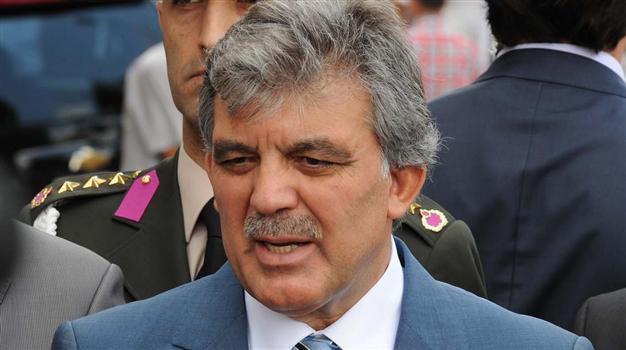Turkey-US policies cannot always overlap: President
ANKARA

Turkish President Abdullah Gül said Obama’s decision should be interpreted within the political traditions of the U.S. DHA photo
Turkish President Abdullah Gül has conceded that Turkey and its closest ally, the United States, hold different views regarding military action against Syria in the aftermath of Damascus’ alleged use of chemical weapons against civilians.In a first official reaction after U.S. President Barack Obama announced he would first seek congressional approval before a strike against Syria, Gül said Obama’s decision should be interpreted within the political traditions of the U.S.
“As a neighboring country [to Syria] our feelings are surely different. They are far from [this region] and they have different feelings. Policies should not necessarily overlap all the time,” Gül told reporters today before the new Russian ambassador to Turkey, Andrey G. Karlov, presented his credentials to the president.
Recalling that every country had its own democratic process in taking such important decisions and that Obama’s move should be seen within the political dynamics of the U.S., Gül said it was obvious that “internal politics forced” Obama to seek congressional approval.
One of the most important disagreements between Ankara and Washington over a potential American attack against Syria has centered on its scope and objectives, which were deemed to be insufficient by the Turkish government. President Gül suggested that any military action without a political strategy would be fruitless while Prime Minister Recep Tayyip Erdoğan openly advised Obama to broaden the scope of the action to topple the Bashar al-Assad regime and to end the bloodshed.
The U.S. administration, however, prefers to punish Damascus just for the use of chemical weapons with the objective of deterring future use of such weapons of mass destruction. Obama launched an intense lobbying effort on Sept. 1 to sway skeptical lawmakers weighing whether or not to support a military strike against Syria. Obama, as well as Vice President Joe Biden and the White House chief of staff, made individual calls to members of Congress, according to a senior White House official. More meetings, at the White House, were planned for yesterday and today for select members of Congress.
Erdoğan to attend G-20 meet
A proposed U.S. action will top the agenda of the G-20 Summit to take place in St. Petersburg on Sept. 5 and 6 as Obama, Erdoğan, Russian President Vladimir Putin and leaders from the major Western countries will come together, in a first high-level summit following Syria’s chemical attack in Damascus on Aug. 21.
Diplomatic sources said Erdoğan could speak with Putin and other leaders on the sidelines of the summit but a meeting with Obama was not yet pre-scheduled. Obama will only attend the opening ceremony of the summit, sources recalled, and thus might have no time for a bilateral meeting with Erdoğan.
Erdoğan is expected to address the summit and to touch on the international community’s double-standard when it comes to intervening in Syria and to resisting the Egyptian coup d’état.
















